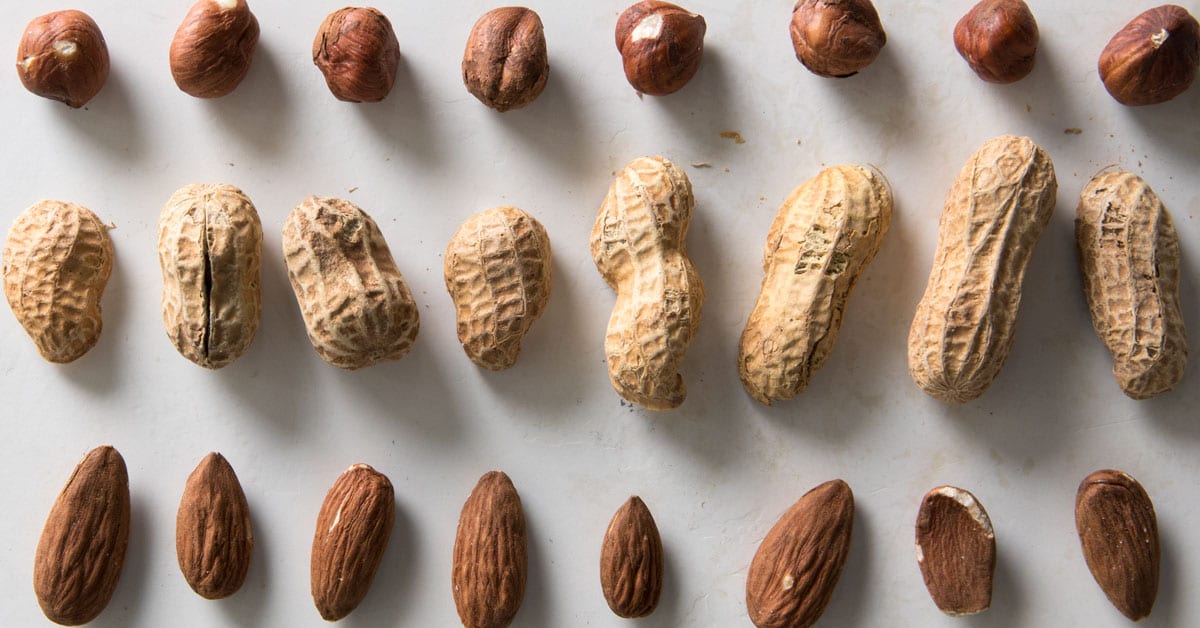Go nuts for vitamin E
This article was originally published in June 2015

Vitamin E is a fat-soluble antioxidant: It prevents food from turning rancid and protects our cells from oxidative damage, which contributes to inflammation and chronic diseases. Vitamin E supplements often are taken to maintain heart health but many of these supplements are synthetic and not as beneficial as the natural vitamin E found in foods.
Vitamin E in foods
Vitamin E is found in highest amounts in nuts and seeds — a small handful (2 ounces) of sunflower seeds will provide your entire daily requirement (15mg/day) of this essential antioxidant. There are eight different forms of vitamin E that appear in foods — four kinds of tocopherols and four kinds of tocotrienols. Alpha and gamma tocopherols are the most common in nuts, seeds and vegetables, while tocotrienols are found in wheat germ and rice bran. In addition to functioning as an antioxidant, tocotrienols have the ability to lower cholesterol levels and are being researched for cancer prevention.
Other vitamin E sources include olives, avocados, dark green veggies and liquid vegetable oils such as olive oil and sunflower oil. Liquid oils would go rancid quickly without vitamin E to protect the fats from oxidation.
Vitamin E in supplements
Less than 10 percent of Americans consume the recommended 15mg each day, so many rely on vitamin E supplements. The best vitamin E supplements will provide all eight forms of natural vitamin E, such as Bluebonnet’s Full Spectrum Vitamin E Complex. Both Natural Factors and PCC-brand offer vitamin E supplements with all four “mixed” tocopherols.
Natural vs. synthetic vitamin E
All of PCC’s supplements use natural vitamin E, which is often derived from sunflower oil and listed as d-alpha-tocopherol. Synthetic vitamin E can be derived from petroleum, and will be labeled as dl-alpha-tocopherol (the “dl” is your clue that the vitamin is synthetic).
Synthetic vitamin E supplements (dl-alpha-tocopherol) should always be avoided because they are less potent, are not as readily absorbed, and are more likely to cause adverse reactions when consumed in excess.
Nut/seed sources
- Sunflower seeds (1 oz) 7.5mg
- Almonds (1 oz) 6.8mg
- Hazelnuts (1 oz) 4.3mg
- Peanuts (1 oz) 2.4mg
Vegetable sources
- Spinach (1 cup, cooked) 6.7mg
- Avocado (1/2 avocado) 1.3mg
- Swiss chard (1 cup, cooked) 3mg
- Pumpkin (1 cup, canned) 2.6mg
- Broccoli (1 cup, raw) 2.4mg
Other sources
- Wheat germ oil (1 Tbls) 20mg
- Safflower oil (1 Tbls) 4.6mg
- Olives and olive oil (1 Tbls) 2mg
- Seafood
